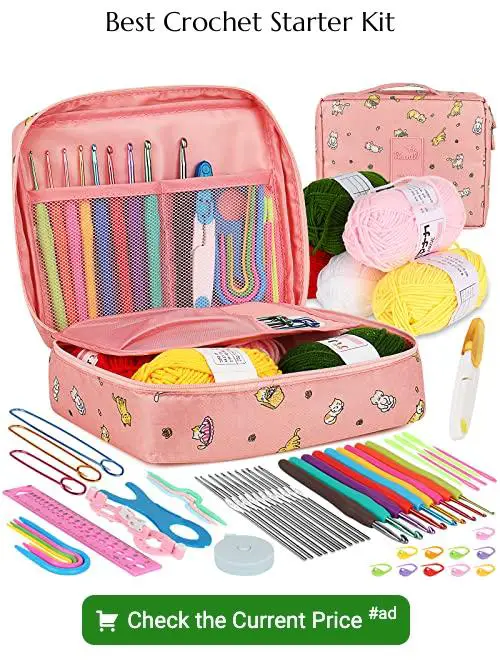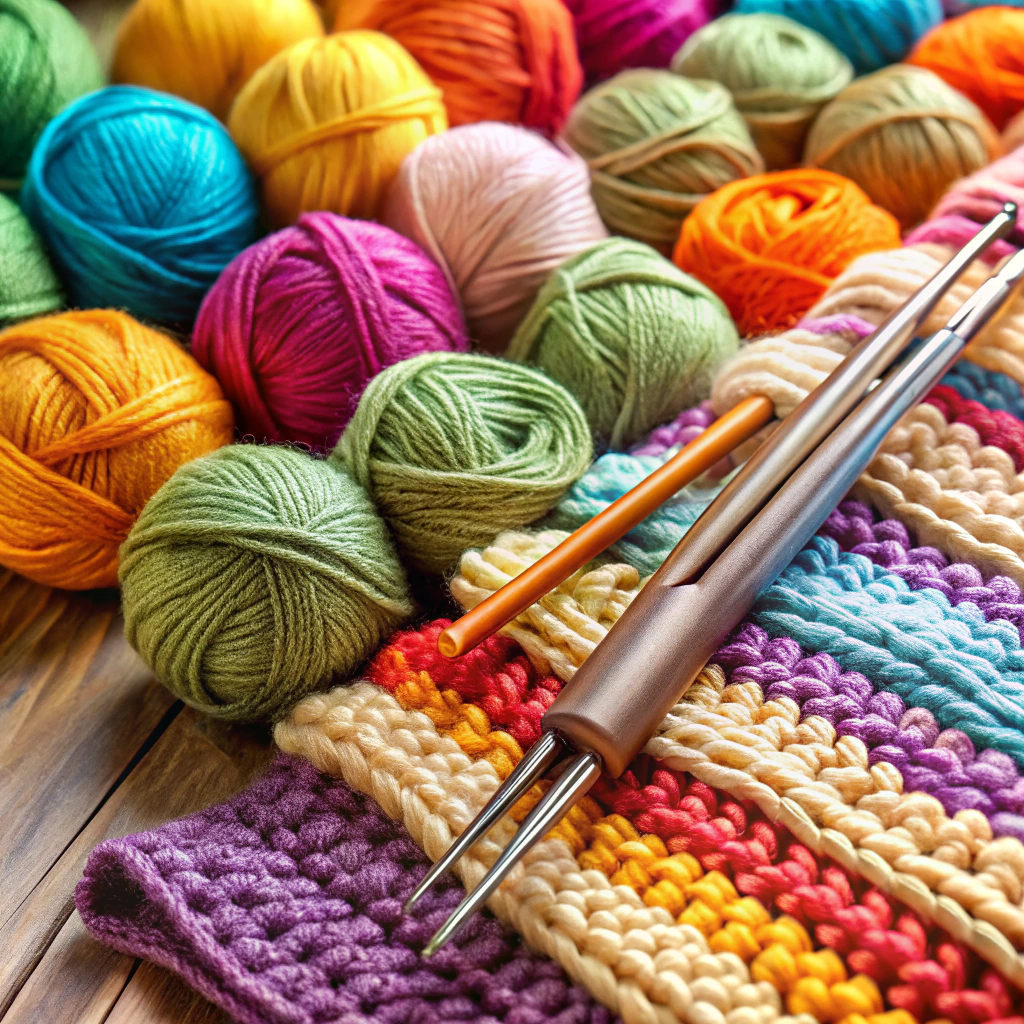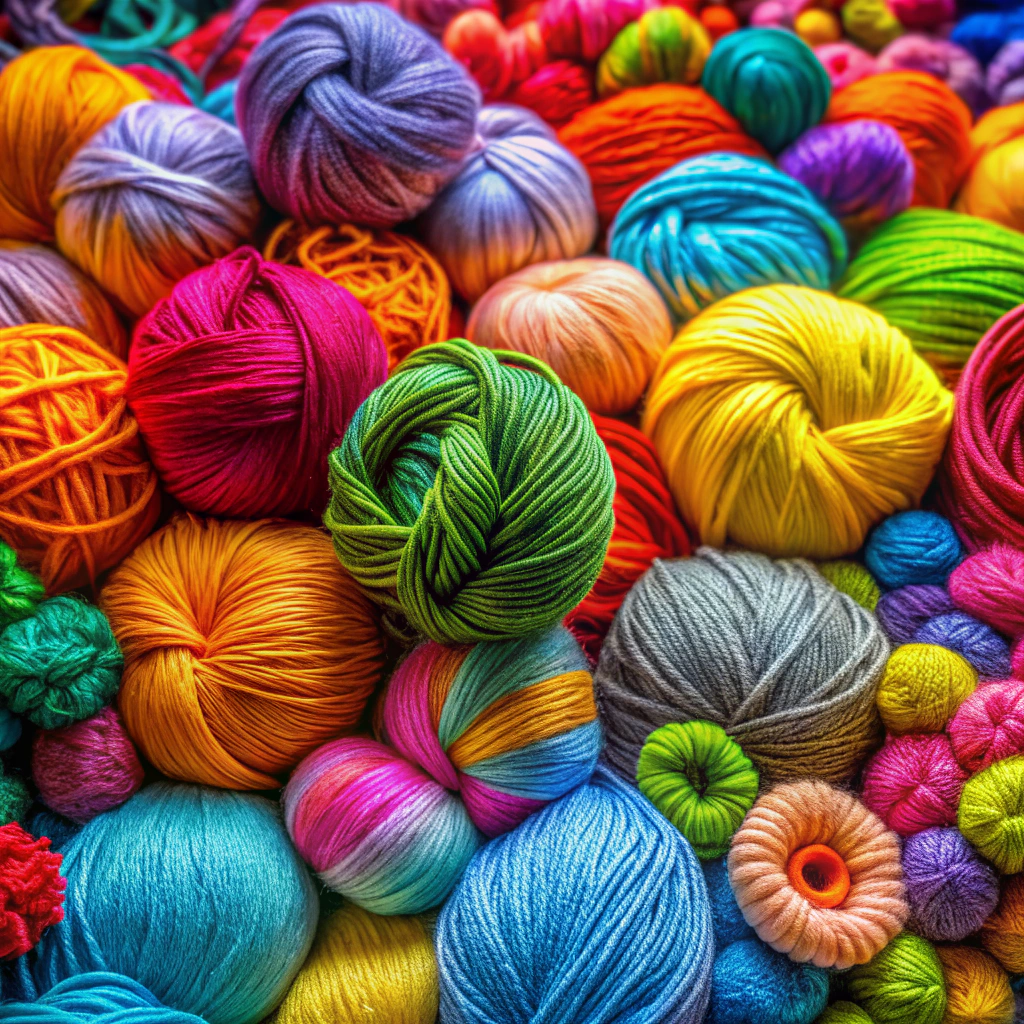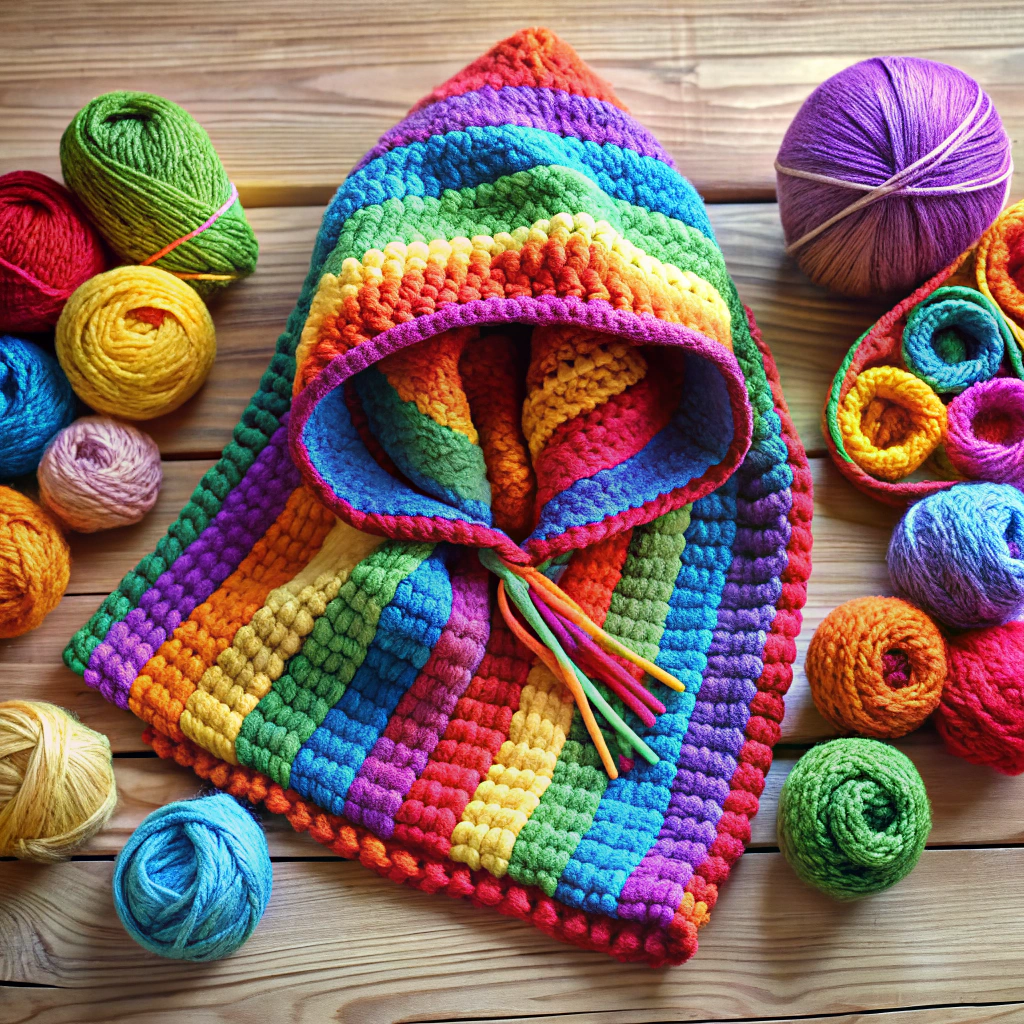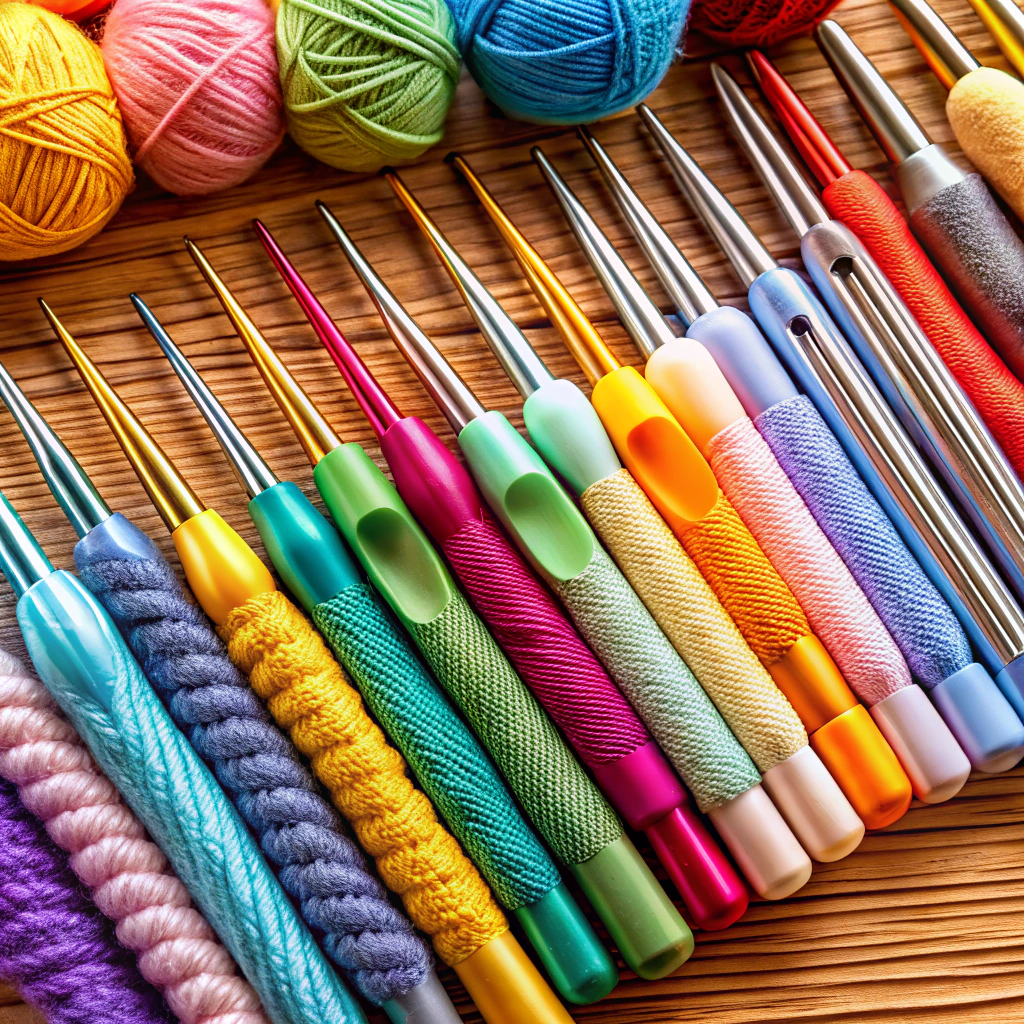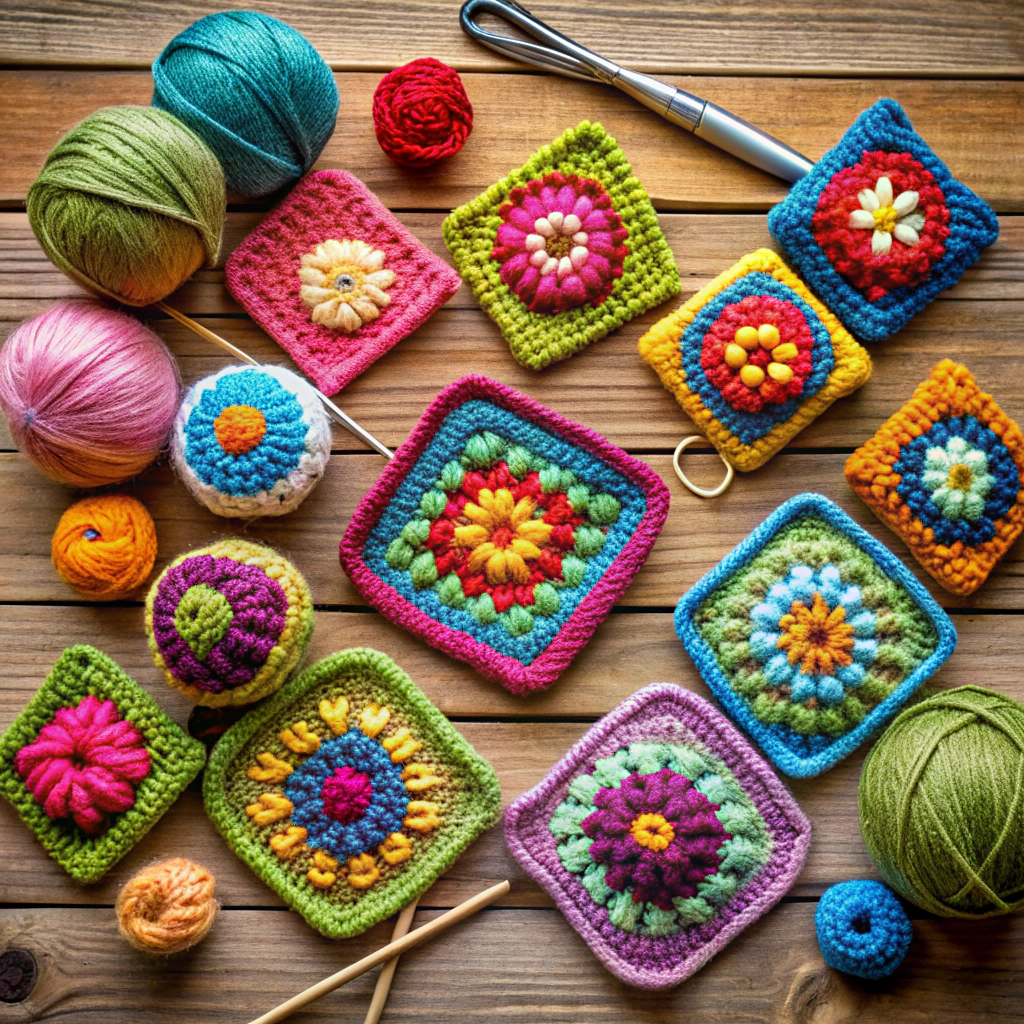Learn how to crochet a classic granny square with these simple step-by-step instructions, perfect for beginners looking to expand their crocheting skills.
Key takeaways:
- Granny squares are versatile and can be made with any yarn and hook size.
- They can be used to create standalone items or joined together for larger projects.
- To crochet a classic granny square, start with a slip knot and chain four, then join to form a ring.
- Repeat the process of creating corners and sides for each round, increasing the number of ch-1 spaces along each side.
- Finish your granny square by tying off loose ends and weaving them in for a neat appearance.
What Is a Granny Square?
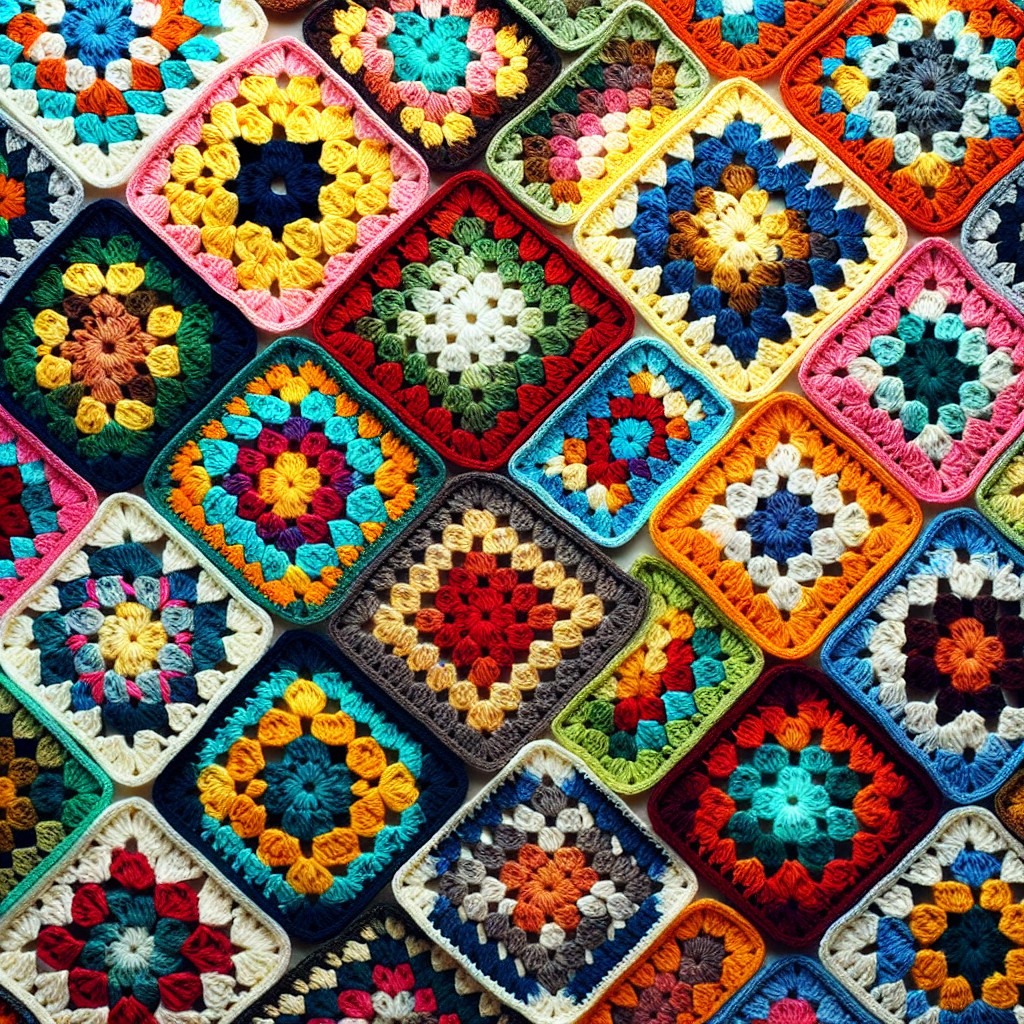
A granny square is a classic crochet pattern that is worked in the round and consists of clusters of stitches, often treble crochets (US terminology), that create a distinctive square-shaped motif. Originating in the Victorian era, this versatile design became especially popular in the 1960s and 1970s, and it remains a favorite among yarn enthusiasts today.
The appeal of granny squares lies in their simplicity and adaptability. They can be created with any type of yarn and hook size, which allows for a range of textures and styles. Additionally, they offer a perfect canvas for color play – each round can be crocheted in a different color, making it a great project for using up yarn scraps.
These motifs are not only standalone items but can be joined together to create larger projects such as blankets, scarves, bags, and more. The simplicity of their structure makes them excellent for beginners, teaching fundamental crochet techniques while rewarding with quick and satisfying results.
Supplies
To embark on your granny square journey, you’ll need a few essential items. First, choose a crochet hook suitable for the yarn weight you’ve selected; a size between 4mm to 6mm is commonly used for this pattern. The yarn choice can range from lightweight for delicate squares to chunky for cozy projects. Opt for a color or a combination that reflects the project’s intended use—bright palettes are great for playful throws, while neutral tones suit a more subdued decor.
You’ll also need a scissors for cutting yarn and a yarn needle for weaving in ends once your square is complete. Ensure you have a comfortable working space with good lighting to keep your stitching even and your eyes relaxed. With your supplies assembled, you’re ready to start crocheting your square.
Classic Granny Square Pattern
Begin by creating a slip knot and chain four (ch 4), then join to form a ring with a slip stitch (sl st) into the first chain.
For the first round, chain three (counts as the first double crochet [dc]). Work two dc into the ring, chain two to create a corner space, then make three more sets of 3dc with 2ch between each set into the ring. Join with a sl st to the top of the beginning ch-3.
Begin the second round by slip stitching over to the first corner space. Ch 3 (counts as first dc), add 2dc, ch 2, and 3dc into the same space to form the corner. *Ch 1, and in the next corner space, work 3dc, ch 2, and 3dc. Repeat from * for each corner, ch 1 to bridge the corners. Join with a sl st to the top of the initial ch-3.
For subsequent rounds, repeat the process of creating corners with 3dc, ch 2, 3dc, and chain one between corners. The only difference as the square grows is the increasing number of ch-1 spaces along each side.
With each round, ensure consistent tension to keep the square flat. After completing the desired number of rounds, cut the yarn, pull through the loop to secure, and weave in loose ends using a yarn needle.
The basic structure of the square is the repetition of creating corners and sides. Each corner is a set of stitches separated by chain spaces, while sides are the spaces between corners that expand with each round. The granny square’s simplicity allows for color changes either by round or at designated intervals for creative variations.
Finishing the Granny Square
Once you’ve reached the desired size for your granny square, it’s time to tie up loose ends—literally. Cut the yarn, leaving a six-inch tail. Yarn over and pull through the loop on your hook, pulling it tight to secure a knot. This method is known as “fastening off.”
With a yarn needle, weave in the tail into the backside of your work to hide it—aim for a zigzag path through several stitches to ensure it’s secured. If you’ve changed colors throughout your granny square, you’ll have multiple tails. Weave each one in with the same care to maintain a neat appearance.
Inspect your granny square for uniformity. Edges should be straight, corners pronounced, and the overall shape square. If you spot any discrepancies, it’s often possible to correct them during the weaving-in process by gently tugging the yarn into the desired shape.
Always take the extra time to finish your granny square properly. A well-finished square makes a world of difference when assembling multiple squares, ensuring that your final project looks cohesive and professional.
Patterns Using Granny Squares
Once you’ve mastered the granny square, you can explore an array of projects that showcase the versatility of this classic motif. Combine multiple squares to create striking afghans or blankets, infusing them with color and personality. These interconnected squares can also form the basis for cozy scarves, stylish bags, and even garments like sweaters and ponchos.
With creative placement and color selection, granny squares can morph into intricate geometric patterns or mimic the look of quilts. For a modern twist, consider using the squares as appliqués on plain items, such as cushion covers or tote bags, adding a pop of texture and vintage charm.
For those interested in gifting or selling their crochet work, small granny squares can be assembled into pot holders, coasters, or dishcloths. The adaptability of the granny square means you can craft items to suit any season or occasion, whether it’s a vibrant summer throw or a festive holiday garland.
As you advance, modifying the traditional granny square with different stitches or three-dimensional effects can lead to unique and sophisticated designs. By experimenting and combining squares of various styles, you can create one-of-a-kind pieces that reflect your personal crochet journey.
